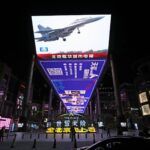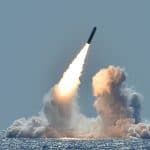Kim and Assad: The chemical cluelessness of dictators
By Amy E. Smithson | March 3, 2017
Chemicals leave their version of fingerprints—a fact that ruthless dictators who use chemicals to kill can’t seem to grasp.
Because fingerprints identify perpetrators, international criminal justice benefits from dictators’ cluelessness. Chemical fingerprints are the reason global headlines have blared accusations that North Korea’s Kim Jong-un ordered the killing of his half-brother Kim Jong-nam with the nerve agent VX (which British scientists discovered in the early 1950s and the Chemical Weapons Convention outlawed in 1997).
The assassination went down like a Hollywood movie. According to Malaysian officials, North Koreans recruited two women to smear Kim Jong-nam with VX at Kuala Lumpur International Airport on February 13. Indonesian Siti Aisyah and Vietnamese Doan Thi Huang claim they were paid 400 Malaysian ringgit (about $90) to smear what they believed was baby oil on Kim’s face as part of a reality-TV stunt. They practiced the attack at two shopping malls in Kuala Lumpur and were trained to wash their hands immediately after the attack. The assault is captured on grainy video footage—Siti’s shirt is incongruously emblazoned with “LOL,” for “laughing out loud.” The women, whom Malaysian authorities have charged with murder, face the death penalty. Officials also jailed one North Korean suspect, Ri Jong-chol, though he is now due to be deported. They have issued warrants for seven others; four are believed to have fled back to North Korea. South Korea asserts that these some or all of these individuals are North Korean intelligence agents.
Gruesome suffering. VX short-circuits the nervous system and, on the way to suffocating them, causes its victims gruesome suffering. Kim died on the way to the hospital, within roughly 20 minutes of the attack. Malaysian investigators later found traces of VX on Kim’s face and eyes—a machine called a GC-mass spec (for gas chromatograph-mass spectrometer) probably did the sleuthing. A GC-mass spec pinpoints chemicals in a sample by comparing them to libraries of known chemicals, including the by-products that chemicals produce as they break down in the environment.
Previously, the Japanese cult Aum Shinrikyo, infamous for its 1995 attack on Tokyo subway commuters with the nerve agent sarin, had used VX in three assassination attempts, one successful. Iraqi dictator Saddam Hussein ordered the first known battlefield use of VX during a March 16, 1988 attack on the Kurdish civilians of Halabja. This attack featured mustard gas but also unleashed the nerve agents tabun, sarin, and VX. All told, approximately 5,000 were killed and 10,000 more were injured.
The Chemical Weapons Convention requires all states that join to eliminate their chemical weapons capabilities but permits them to make small amounts of warfare agents to test their chemical defenses, such as gas masks, decontamination equipment, and antidotes. Inspectors from the Organization for the Prohibition of Chemical Weapons carefully monitor all such activity.
The United States and Russia have mostly eliminated what were the two largest chemical arsenals in the world. But VX still awaits destruction in both countries—in the United States, at Blue Grass Army Depot in Kentucky, and in Russia, at Kizner in the Udmurt Republic. North Korea, South Sudan, Egypt, and Israel have yet to join the chemical weapons accord. The US intelligence community identifies North Korea as a possessor of chemical weapons, including the nerve agents VX and sarin.
Serial violator. North Korea has officially denied any responsibility for Kim Jong-nam’s assassination—instead asserting that Kim died of a heart attack and that Malaysia, influenced by Pyongyang’s rival South Korea, is unfairly focusing its investigation on the North. Sound familiar?
The other current dictator who kills with chemicals, Syria’s President Bashar al-Assad, claims his military is not responsible for chemical attacks that international investigators link directly to him, his brother Maher, others in his circle, and individual units of the Syrian military. Assad has many more chemical deaths on his hands than does Kim Jong-un—nearly 1,500 fatalities, according to the Syrian-American Medical Society.
In the early morning hours of August 21, 2013, Assad’s military launched a barrage of sarin-filled rockets on the Damascus neighborhoods of Zamalka and Moadamiyah. A team of international inspectors—led by a veteran Swedish inspector, Ake Sellstrom—photographed and identified the two types of rockets used. One was a variant of the 140-millimeter M-14 and the other was a 330-millimeter Volcano rocket. Both are known to be in Syria’s arsenal. Online videos showing the Syrian army using the conventional versions of these weapons are easy to find. Inspectors took samples from the attack sites, which tested positive for sarin and for the chemicals present when sarin begins to degrade (or break down chemically). The inspectors—by examining survivors, consulting medical records, interviewing medical personnel, and analyzing biomedical samples—confirmed sarin as the cause of death and injury.
In October 2013, Syria acceded to the treaty. But the attacks that international inspectors have pegged even more directly to Assad and his inner circle came later. They involve chlorine barrel bombs dropped from helicopters on the Syrian towns of Talmenes and Sarmin in April 2014 and March 2015, respectively. A fact-finding mission of the Organization for the Prohibition of Chemical Weapons also found “compelling confirmation” that helicopters had dropped chlorine barrel bombs on these occasions. So did Human Rights Watch. The Chemical Weapons Convention prohibits the use of any chemical for military purposes, including those—like chlorine—with commercial uses. Moreover, even after Syria’s accession to the treaty, inspectors have found indications—such as samples from Syrian facilities that test positive for the nerve agent soman and for two chemicals associated with the breakdown of VX—that Syria likely continues to hide the remnants of its full chemical weapons program. Syria is a serial violator of the Chemical Weapons Convention.
Quite a pair. Deaths from poison gas command attention because they cross an ethical line of warfare. But the callous duo of Assad and Kim have killed far more people through conventional than chemical means. South Korea’s Institute for National Security Strategy reports that Kim has executed more than 340 people since assuming power in 2011. Like his father before him, Kim is living luxuriously and pouring funds into North Korea’s military while his people suffer. Again, sound familiar? Last February, the Damascus-based Syrian Center for Policy Research reported the Syrian conflict had taken 470,000 lives. The Syrian Network for Human Rights reports that government forces killed 8,736 civilians in 2016 and it attributes an additional 3,967 civilian deaths to the Russian military, which has used air and ground forces to back Assad’s regime.
If ever a pair deserved a walloping dose of international criminal justice, it is Kim Jong-un and Bashar al-Assad. Yet on February 28, Russia, China, and Bolivia vetoed a Security Council resolution that would have barred the sale of helicopters to Syria and would have banned travel by and frozen the assets of 11 Syrian military commanders or officials (along with 10 government and other groups) that investigators have identified as responsible for chemical attacks.
The obvious response for the nine Security Council members that backed the resolution (three nations abstained) is to lead a charge outside the Security Council, rallying as many countries as possible to enact joint sanctions anyway. That course of action would open the door for the imposition of broader and tougher sanctions than those just vetoed.
Chemical fingerprints don’t lie, and the staggering carnage that Assad has inflicted on his populace for five years begs for robust penalties. Failure to uphold international law only invites more lawlessness.
Together, we make the world safer.
The Bulletin elevates expert voices above the noise. But as an independent nonprofit organization, our operations depend on the support of readers like you. Help us continue to deliver quality journalism that holds leaders accountable. Your support of our work at any level is important. In return, we promise our coverage will be understandable, influential, vigilant, solution-oriented, and fair-minded. Together we can make a difference.
Topics: Analysis














